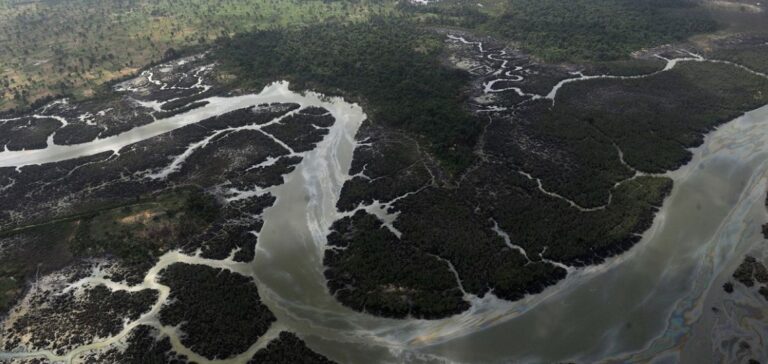The British Supreme Court on Wednesday rejected an appeal against oil giant Shell over a 2011 oil spill, noting among other things that the case was brought too late when it was a “one-off event” and not an “ongoing nuisance”.
“The claimants’ argument that there is a continuing nuisance, because … oil is still present on their land and has not been removed or cleaned up, is rejected,” the British court said in a statement. The lawsuit was filed by two Nigerian citizens seeking compensation from Shell and claimed to be acting on behalf of nearly 28,000 others – but the Supreme Court justices ruled that it was not a class action.
Another case, in which the Supreme Court in 2021 allowed tens of thousands of Nigerians to sue the oil giant in the United Kingdom for environmental damage inflicted by black gold leaks, is unaffected by this decision and is continuing.
Wednesday’s ruling, meanwhile, refers to an oil leak that occurred on December 20, 2011, in the Bonga oil field while oil was being transferred onto a ship. With 40,000 barrels spilled, it was “one of the largest spills in the history of Nigerian oil exploration,” according to the Supreme Court. The court noted that because the main complaint was filed more than six years after the oil allegedly reached the shoreline, it was too late unless it implied a “continuing nuisance,” which it ruled against, as did the trial and appellate judges’ decisions.
“It was clear from the outset that these claims were unfounded and entirely out of time,” Shell reacted in a statement sent to AFP, welcoming the fact that “this judgment puts an end to the proceedings here in England. “While the Bonga leak in 2011 was highly regrettable, it was quickly contained and cleaned up offshore,” the company argued. Contacted by AFP, the plaintiffs’ lawyers said they did not wish to comment.
In a case involving other oil spills, the British courts have been seized by nearly 14,000 representatives of the Ogale and Bille communities of the Niger Delta, whose populations exceed 50,000. The Supreme Court had allowed the case to proceed in February 2021, overturning two opposite decisions of courts in London that refused to be seized. A trial date has not yet been set.





















